Related Research Articles

George Digby, 2nd Earl of Bristol was an English politician and peer who sat in the House of Commons from 1640 until 1641, when he was raised to the House of Lords by a writ of acceleration. He supported the Royalists during the English Civil War, but his ambition and instability of character caused serious problems to himself and both Kings he served.
Denis Bond was an English politician who sat in the House of Commons in two periods between 1640 and 1656. He supported the Parliamentarian cause in the English Civil War and served as president of the Council of State during the Commonwealth.
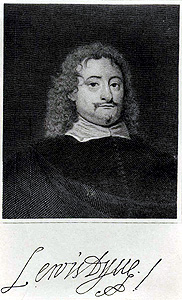
Sir Lewis Dyve (1599–1669) was an English Member of Parliament and a Royalist adherent during the English Civil War. His surname is sometimes also spelt Dive or Dives.
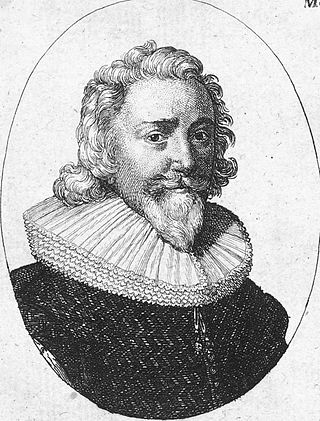
Sir Benjamin Rudyerd or Rudyard was an English poet and politician who sat in the House of Commons at various times between 1621 and 1648. He was also a colonial investor who was one of the incorporators of the Providence Company in 1630. He was a moderate supporter of the Parliamentary cause in the English Civil War.

Sir John Glanville the younger, was an English politician who sat in the House of Commons at various times between 1614 and 1644. He was Speaker of the English House of Commons during the Short Parliament. He supported the Royalist cause in the English Civil War.
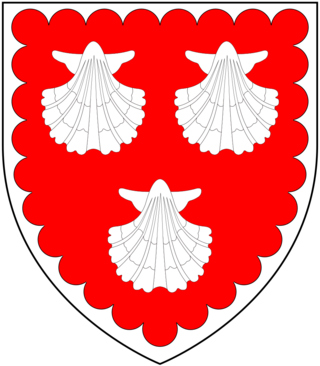
Sir Walter Erle or Earle was an English landowner and politician who sat in the House of Commons at various times between 1614 and 1648. He was a vigorous opponent of King Charles I in the Parliamentary cause both before and during the English Civil War.
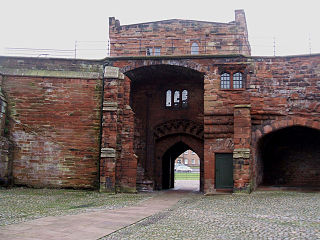
Sir George Dalston (1581–1657) of Dalston Hall, Cumberland was an English politician who sat in the House of Commons of England between 1621 and 1643. He supported the Royalist cause in the English Civil War.

Sir William Savile, 3rd Baronet of Thornhill was an English politician who sat in the House of Commons between 1640 and 1642. He fought on the Royalist side in the English Civil War and was killed in action.
Sir Neville Poole was an English politician who sat in the House of Commons variously between 1614 and 1648. He supported the Parliamentarian side in the English Civil War.

Sir John Strangways of Melbury House, Melbury Sampford, Somerset, and of Abbotsbury in Dorset, was an English politician who sat in the House of Commons variously between 1614 and 1666. He supported the Royalist side in the English Civil War.

Giles Strangways of Melbury House in Somerset, was an English politician who sat in the House of Commons variously between 1640 and 1675. He fought on the Royalist side during the Civil War
John Digby was an English politician who sat in the House of Commons from 1640 to 1642. He fought on the Royalist side in the English Civil War and died as a priest at a convent in France.

Sir Sampson Eure was an English lawyer and politician who sat in the House of Commons at various times between 1621 and 1643. He supported the Royalist cause in the English Civil War.
John Ashe (1597–1658) was an English clothier and politician who sat in the House of Commons at various times between 1640 and 1656.

Henry Thynne was an English Tory politician who sat in the English and British House of Commons from 1701 to 1708.
John Freke was an English politician who sat in the House of Commons between 1614 and 1624.
Bullen Reymes was an English courtier, diplomat and politician who sat in the House of Commons from 1660 to 1672. He fought in the Royalist army in the English Civil War.
Maurice Ashley, of Bedford Row, Westminster, was an English Whig politician who sat in the English and British House of Commons between 1695 and 1713.
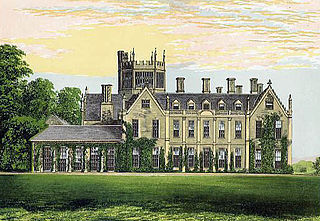
Thomas Strangways (1643–1713) of Melbury House in Melbury Sampford near Evershot, Dorset was an English landowner and Tory politician who sat in the English and British House of Commons between 1673 and 1713. As a militia colonel he was active in opposing the Monmouth rebellion. For his last nine years in Parliament, he was the longest sitting member of the House of Commons.
John Tucker was a British politician who sat in the House of Commons between 1735 and 1778.
References
- ↑ George Alfred Ellis The history and antiquities of the borough and town of Weymouth and Melcombe Regis
- ↑ Willis, Browne (1750). Notitia Parliamentaria, Part II: A Series or Lists of the Representatives in the several Parliaments held from the Reformation 1541, to the Restoration 1660 ... London. pp. 229–239.
- ↑ Somersetshire Archaeological and Natural History S. Proceedings (Volume 16).